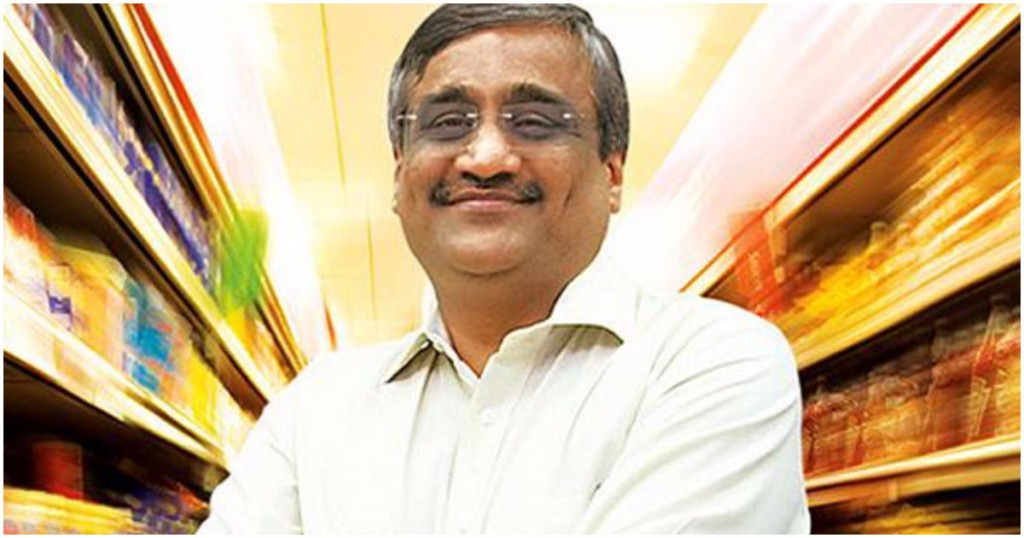The grocery delivery space has seen many startups crash and burn, but a old hand is now throwing its hat into the ring.
The Future Group says it’s soon launching its grocery delivery service, which will allow customers to order groceries through its app. The grocery delivery service appears to be a part of Kishore Biyani’s Retail 3.0 initiative, through which the company wants to enable subscriber-only stores throughout India. Future Retail will deliver groceries to EasyDay members through its chain of EasyDay stores, and the app will be released in the coming weeks.

“Fruits and vegetables are a great way to get customers frequently. They are daily products. We want the first mover advantage,” said Vinay Bhatia, CEO of group loyalty and analytics. And Future Group is clear on how it will have an advantage over other e-commerce players. “Delivering fresh fruits and vegetables from a central warehouse to customers’ house (which most ecommerce players do at present) is unimaginable,” he said.
Future Group will enter the grocery delivery vertical with something no grocery delivery startup in India has had — a ready supply of stores that already stock grocery products. Future Group will make its grocery delivery through its chain of 950 EasyDay stores across India. In contrast, other startups had chosen only to be middlemen in the grocery delivery space — companies like Ola Cafe, Grofers and PepperTap initially took orders from customers, sent delivery executives to other branded grocery stores, and made deliveries.
That strategy had proven be to expensive and economically unviable, and had come spectacularly undone when a string of companies in the space had shut down or curtailed operations within a few months in 2016. In January 2016, Grofers had pulled back its operations from 9 cities; the same month, PepperTap had shut operations in 6 cities and fired 400 employees. Even bigger players had struggled — in March, Flipkart had shut down its grocery delivery service Nearby, and Ola had shut its grocery delivery play Ola Store. In the biggest blow to the sector, PepperTap, one of the best funded startups in the space, had shut down in April.
Since then, the remaining companies have been looking to rebuild and consolidate their operations. They’ve also changed their strategy — Grofers now has its own warehouses that stock grocery products from where it makes deliveries, as does BigBasket. But the Future Group could end up one-upping them both — instead of having central warehouses, it already has EasyDay stores which dot India’s cities. Customers who’ll order groceries from these stores will be located with 2.5 kilometers of each stores, and this could make deliveries simpler and possibly cheaper.
Also, Future Group’s grocery play will already have customers who’re likely to be loyal — EasyDay will open these deliveries to customers who’ve paid an annual Rs. 999 fee to become members of these stores. These customers will likely order often from EasyDay, and are also less likely to stray away to other competitors. And groceries can be a jumping point for other, bigger purchases — if you’re ordering milk and eggs twice a week, you can also be persuaded to add bigger items, which EasyDay already stores, onto your order. Most importantly, the biggest e-commerce company in the world realizes the importance of having grocery stores on the ground — last year, Amazon purchased grocery chain WholeFoods for $11 billion, partly to give it an on-ground presence for its grocery delivery vertical.
And EasyDay’s move into the online grocery delivery business might be coming at just the right time. Other startups, such as Grofers and BigBasket, have gotten Indians used to the idea of ordering groceries online by spending big money on promotions and discounts. EasyDay could ride on their coattails and steal away some of their market. If the Future Group can execute on its latest idea, and keep costs under check through its model of distributed EasyDay stores, it has a serious chance of making a mark in India’s rapidly changing grocery delivery market.